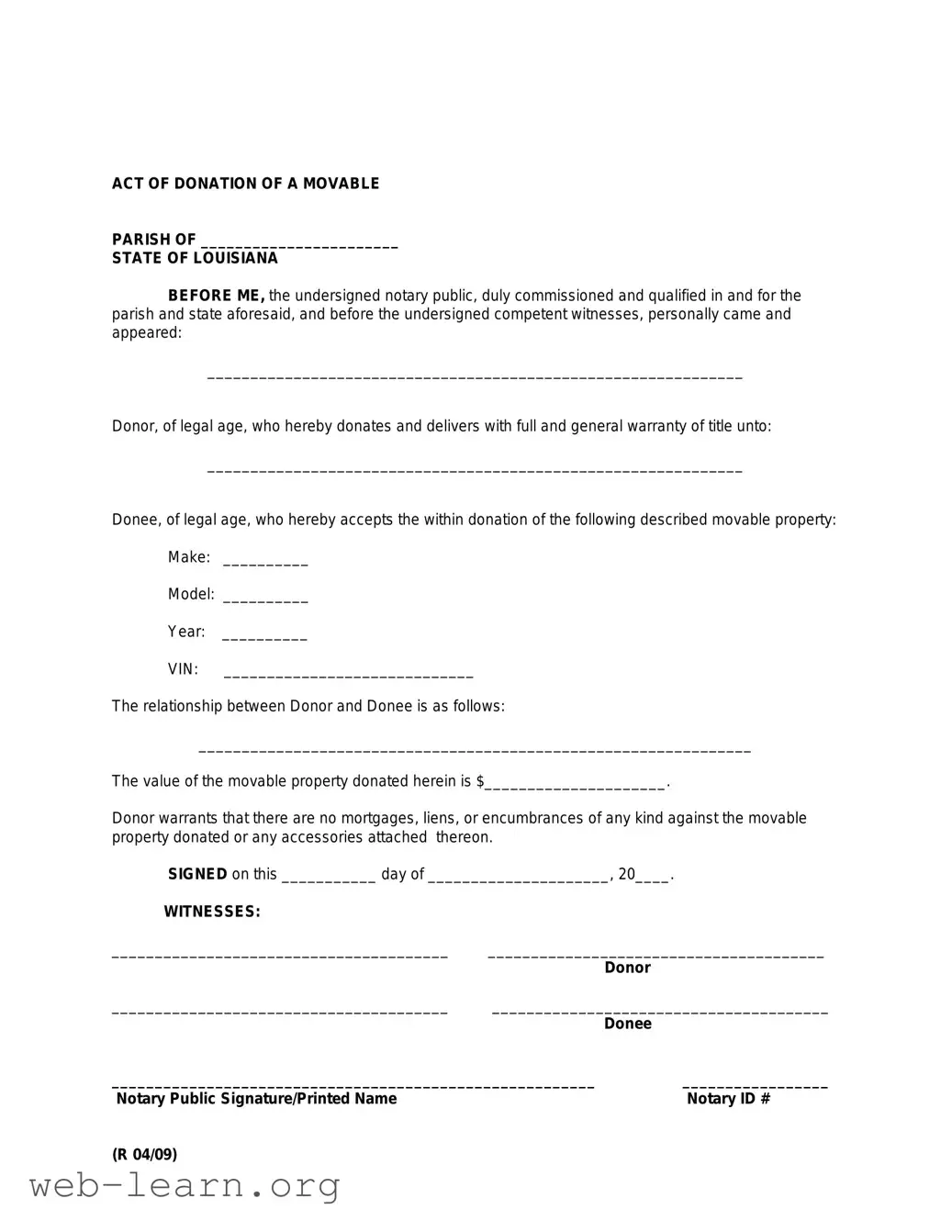
Louisiana Department of Public Safety and Corrections
OFFICE OF MOTOR VEHICLES
ACT OF DONATION OF A MOVABLE
STATE
OF LOUISIANA
PARISH
OF ___________________________
BEFORE ME, the undersigned notary public, duly commissioned and qualified in and for the parish and
state aforesaid, and before the undersigned competent witnesses personally came and appeared:
______________________________________________________________
DONOR
Donor, of legal age, who hereby donates and delivers with full and general warranty of title unto:
______________________________________________________________
DONEE
Donee, of legal age, who hereby accepts the within donation of the following described movable property:
_______________________________________________________________________________________
MAKE MODEL YEAR VIN
The relationship between Donor and Donee is as follows: ________________________________
The value of the movable property donated herein is $_____________________.
Donor warrants that there are no mortgages, liens, or encumbrances of any kind against the movable property
donated or any accessories attached thereon.
SIGNED on this ___________day of _____________________, 20____.
_______________________________________ _____________________________________
Witness Signature/Printed Name Donor Signature/ Printed Name
_______________________________________ _____________________________________
Witness Signature/Printed Name Donee Signature/ Printed Name
_____________________________________________________________________________
Notary Signature Notary Printed Name Notary ID
DPSMV1699 R0518

